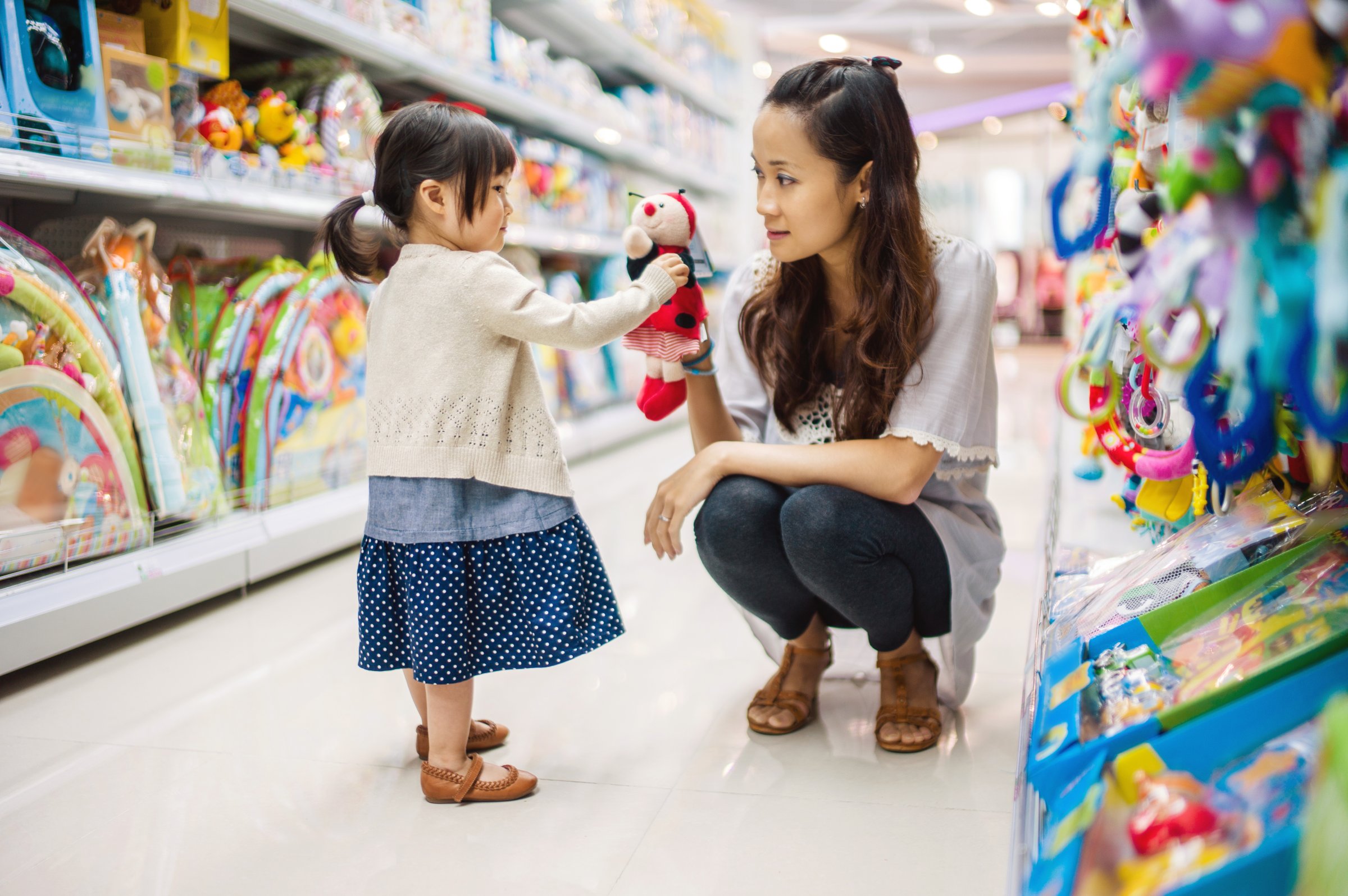
When we shop for holiday gifts, many of us look for things that will make our children happy. We can’t wait to hear their appreciative cries of “thank you! thank you!” once the wrapping gets ripped off.
But here’s a tip: Don’t count on it.
In this season for thanks and giving, even the most thoughtful children may not offer much gratitude for the gadgets, gizmos, and games they receive. And you’d be wise not expect it.
I’ve spent the last year living more gratefully because of a book I’m writing on the subject, so I’m confident that gratitude can make us happier, healthier, and even fitter. Seeing the world through grateful eyes can lower depression and improve sleep. It creates a pay-it-forward spirit that is good for the world. Encouraging children to write down events that made them grateful—and not just on Thanksgiving—can begin a habit that lasts a lifetime.
Read: What I’m Thankful For, by Nick Offernan, Wendy Davis and others
But gratitude for the endless stuff we buy them? All the research I’ve done has convinced me that it’s not going to happen. And there are several reasons why.
In one study, Yale’s assistant professor of psychology, Yarrow Dunham, found that 4- to 8-year old kids responded differently when given a gift they thought they earned versus one that was granted out of simple generosity. He called the earned gift an “exchange relationship.” The children were happy for the trinket but didn’t experience the deeper resonance of gratitude that might also make them more generous to others. The gift given for no reason, however, had a different emotional impact and the children showed thanks by being more likely to share candies they received in a follow-up game.
As parents, we don’t consider our holiday gifts an “exchange relationship” since we know the time, money, and effort we put in to buying them. But kids have a different view. One mom told me that when she asked her 16-year-old son to thank her for buying him a cellphone, he said, “But that’s what moms do, isn’t it?” He wasn’t being rude—just practical.
From a teenager’s vantage, it’s a parent’s responsibility to take care of the family, and playing Santa is part of the job. According to Dunham, “when teenagers code it that way, a gift is no longer something given freely and voluntarily”—it’s just mom and dad living up to their obligation. And who’s going to be grateful for parents doing what they’re supposed to do?
Read: 40 Inspiring Motivational Quotes About Gratitude
Asking our children to be grateful for gifts is sending the wrong message, anyway. Cornell psychology professor Tom Gilovich has found that people are more likely to be grateful for experiences than for material possessions. A family dinner, a songfest around the fireplace, or even a hike in the woods creates a spirit of gratitude that outlasts even the nicest Nintendo.
Parents may get exasperated when a teenager tosses a new cashmere sweater on the floor, and gratitude aside, and we do have the right to demand good manners. Children should know to say thank you (profusely) to every parent, child, aunt, and uncle who gives them something.
But kids can’t know how blessed they are unless they have a basis for comparison. And they don’t learn that by a parent complaining that they’re ungrateful. We need to give our children the gift of a wider world view. Take them to a soup kitchen instead of to the mall. Become the secret Santa for a needy family. Show by example that gratitude isn’t about stuff—which ultimately can’t make any of us happy anyway. It’s about realizing how lucky you are and paying your good fortune forward.
My favorite idea: Collect all the charitable appeals you get this time of year into a big basket and find a night when the whole family can sit down together to go through them. You set the budget for giving and the kids decide how it’s distributed. Going through each request, you have the opportunity to discuss with children and teens (and also your spouse) what it means to need a food bank or to live in a part of the world where there is no clean water. You can talk about teenagers who are caught in war zones or those suffering from disabilities. Then write the checks together or go online and make your contributions.
Once the conversation about gratitude gets started, it’s much easier to continue all year. Set up a family ritual at bedtime where kids describe three things that made them grateful. When kids go off to college, text them a picture each week of something that inspired your appreciation. Whether it’s a friend, a snowflake, or a sunset, the spirit of the photos will help you (and them) see the world differently.
Teaching children to focus on the positive and appreciate the good in their lives is perhaps the greatest gift we can give them. And we can all learn together that the things that really matter aren’t on sale at a department store.
So I hope my kids will thank me for the gifts I buy them this year. But gratitude? That needs more than wrapping paper and a bow.
More Must-Reads from TIME
- L.A. Fires Show Reality of 1.5°C of Warming
- Home Losses From L.A. Fires Hasten ‘An Uninsurable Future’
- The Women Refusing to Participate in Trump’s Economy
- Bad Bunny On Heartbreak and New Album
- How to Dress Warmly for Cold Weather
- We’re Lucky to Have Been Alive in the Age of David Lynch
- The Motivational Trick That Makes You Exercise Harder
- Column: No One Won The War in Gaza
Contact us at [email protected]